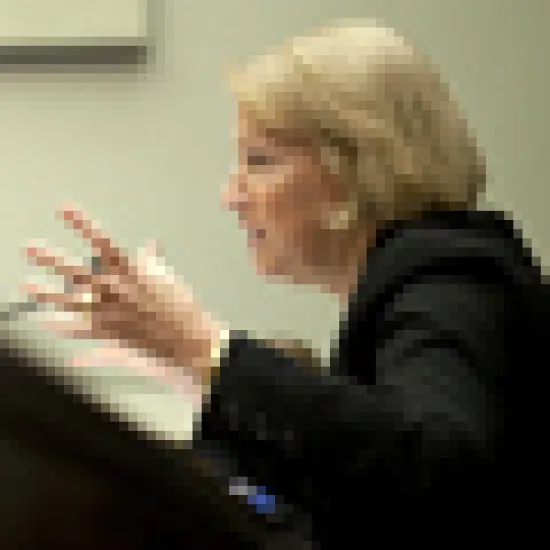
Mary Schapiro, chairman of the U.S. Securities and Exchange Commission, testifies at a House Financial Services subcommittee hearing in Washington, D.C., U.S., on Tuesday, July 20, 2010. The U.S. government may struggle to determine whether hedge funds pose risks that could topple the economy and to what degree regulators should consider curtailing industry trading practices, Schapiro told lawmakers. Photographer: Brendan Hoffman/Bloomberg *** Local Caption *** Mary Schapiro
Brendan Hoffman/Bloomberg


